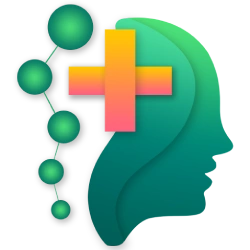Addiction Treatment in Borivali – Dr. Nishtha Dalwani
Addiction
Addiction refers to a complex condition characterized by compulsive substance use despite harmful consequences. It affects the brain’s reward, motivation, and memory functions, leading to persistent cravings and difficulty in controlling substance use. It encompasses a range of substances, including drugs, alcohol, and behaviors such as gambling or gaming. Addiction to smoking, drugs, and mobile devices can significantly impact individuals’ physical and mental health. These addictive behaviors often stem from complex psychological and social factors, leading to compulsive usage despite harmful consequences. Effective treatment strategies aim to address underlying triggers and develop healthier coping mechanisms to overcome addiction.
What are the types of addiction?
The two main categories of addiction are substance addictions, which involve the misuse of drugs or alcohol, and non-substance addictions, also known as behavioral addictions.
Substance addictions
Substance addictions encompass various drugs with addiction potential, including alcohol, caffeine, cannabis, hallucinogens, hypnotics, sedatives, opioids, stimulants, and tobacco/nicotine. These substances activate the brain’s reward center, leading to feelings of pleasure and the potential development of substance use disorders (SUDs).
Non-substance addictions
Non-substance addictions, on the other hand, involve compulsive engagement in activities that stimulate the brain’s reward system. While only gambling disorder is currently recognized as a diagnosable behavioral addiction in the DSM-5, other potentially addictive activities include eating, exercising, shopping, sex, gaming, internet use, and risky behaviors.
What are the symptoms of addiction?
- Cravings: Strong urges or desires to engage in addictive behavior or use the substance.
- Loss of Control: Difficulty controlling or moderating the addictive behavior, despite efforts to cut back or stop.
- Withdrawal Symptoms: Physical or psychological symptoms experienced when attempting to reduce or stop the addictive behavior or substance use.
- Tolerance: Needing increasing amounts of the substance or behavior to achieve the desired effect.
- Continued Use Despite Negative Consequences: Persisting in the addictive behavior despite experiencing negative consequences in various areas of life, such as relationships, work, or health.
- Preoccupation: Spending a significant amount of time thinking about, obtaining, or engaging in addictive behavior.
- Neglecting Responsibilities: Neglecting responsibilities, hobbies, or activities that were once important in favor of addictive behavior.
- Secrecy and Deception: Engaging in secretive or deceptive behavior to hide the extent of the addiction from others.
- Mood Changes: Experiencing mood swings, irritability, or agitation when unable to engage in the addictive behavior or use the substance.
- Social Withdrawal: Withdrawing from social interactions or activities to prioritize addictive behavior.
What is the treatment for addiction?
Substance Addictions:
- Cognitive Behavioral Therapy (CBT): Helps individuals identify and change unhealthy thoughts and behaviors related to substance use.
- Motivational Interviewing (MI): Focuses on increasing motivation and commitment to change by exploring ambivalence and resistance.
- Medication-Assisted Treatment (MAT): Uses medications to reduce cravings and withdrawal symptoms.
- Contingency Management (CM): Provides rewards or incentives for achieving abstinence or meeting treatment goals.
- 12-Step Programs: Participating in support groups like Alcoholics Anonymous (AA) or Narcotics Anonymous (NA) for peer support and guidance.
Non-substance addictions
- Cognitive Behavioral Therapy (CBT): Helps individuals identify and challenge maladaptive thoughts and behaviors related to the addictive behavior.
- Exposure and Response Prevention (ERP): Involves gradual exposure to triggers or situations associated with the addictive behavior, paired with prevention of the usual response.
- Mindfulness-Based Interventions: Teaches individuals to observe and accept their thoughts and feelings without judgment, reducing impulsivity and increasing self-control.
- Family Therapy: Involves family members in the treatment process to address underlying family dynamics and improve support systems.
If you’re struggling with addiction, take the first step towards recovery with Dr. Nishtha Dalwani, top Psychotherapist in Mumbai. Book your appointment today to get rid of addiction behavior.

